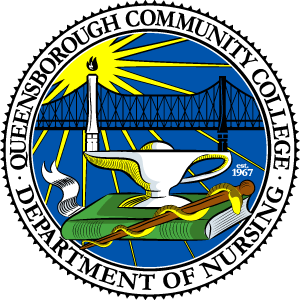Department of Nursing
About

The Queensborough Community College program in Nursing, established in 1967, has developed into one of the most respected Associate degree programs in New York State. Clinical nursing courses for students are offered in the Fall and Spring semesters. Students are provided many options to continue onto a Baccalaureate Degree in Nursing.
The Nursing clinical curriculum is integrated into the College setting and provides a strong foundation in general education, biological sciences, and social sciences, as well as nursing science. The Associate Degree Nurse is educated to function in a variety of structured health care settings and provide direct care to patients with common, well-defined health care needs.
Queensborough offers unique Dual/Joint Programs with Hunter Bellevue School of Nursing, York College, and the CUNY School of Professional Studies (SPS) which leads to a baccalaureate degree in Nursing.
Students participate in clinical experiences during each semester of the four core courses in the program, and utilize a variety of private and public acute care hospitals in Queens and Nassau. In addition, the Department has five well-equipped laboratories, a Virtual Hospital utilizing simulation and a Nursing Computer Resource Center.
The program is registered by the New York State Education Department and accredited by the Accreditation Commission for Education in Nursing, Inc. (ACEN), 3343 Peachtree Road NE, Suite 850, Atlanta, GA 30326, Telephone: 404-975-5000. Graduates are eligible to take the National Council Licensure Examination for Registered Professional Nursing (NCLEX-RN).
Mission Statement

Philosophy of the Department of Nursing
The philosophy of the Department of Nursing is based upon the relationships among the concepts of the individual/ patient, environment, health, and nursing.
The Individual is a biopsychosocial and spiritual being who functions within the context of the family, culture, and community. Individuals have basic physiological, psychosocial and developmental needs across the lifespan. These needs must be fulfilled in order for a state of health to exist. An individual or group of individuals becomes a Patient upon entry into a healthcare system for assistance in achieving maximum self-care potential.
The Environment is the aggregate of biological, physical, spiritual, social and cultural conditions that influence the life of the patient. The health of the patient is affected by the local and global environment.
Health is living within one’s environment while achieving the greatest level of functioning. Therapeutic support of the patient leads to a state of health, wholeness, well-being and integrity of the individual. The ability to maintain optimum wellness varies among individuals based on developmental stage, life experiences, health alterations, level of knowledge, values, culture and environment. Alterations emerge when the individual cannot meet their needs as a result of disease, injury or life cycle events. When individuals cannot meet their own needs, they have the right to receive patient centered assistance in moving towards their highest level of functioning and health.
Nursing, as a profession, must focus on health promotion, while affirming the dignity and worth of the patient. The nurse must maintain a safe, effective care environment while providing for the physiological and psychosocial integrity of the patient. This concept of nursing practice acknowledges the individual, family and/or significant support person participation in shared decision-making regarding the expected outcomes of patient care. The nurse, as a member of the interdisciplinary team, assists the patient to achieve the highest level of functioning and health through supportive and/or restorative care across varied healthcare settings. In order to achieve this outcome, the nurse, as a member within the discipline of nursing, uses nursing science as well as knowledge from general education disciplines to provide evidence-based health care. The nursing process guides clinical decision-making and critical thinking.
Goals
To develop and deliver courses and academic programs that support student success and maintain the highest level of academic rigor.
To encourage and support faculty as teachers, scholars, and members of an academic community who provide college service to advance the goals of the institution.
To collaborate with Academic Affairs, other academic departments, and the campus community in support of academic initiatives for student success and the college's mission and goals.
To develop and implement processes and practices that assess for student learning and in support of the college's mission and goals.



